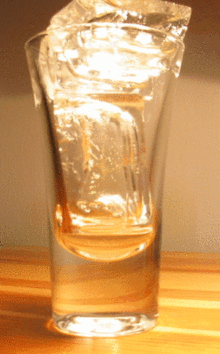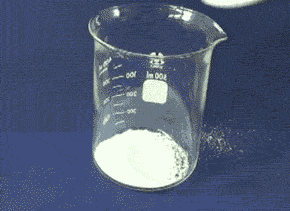More big ideas... about heating and cooling
Other forms of energy can be changed into heat energy. Wood and natural gas can be burned to produce heat for your home. Electricity can be used to create heat in your toaster, oven or microwave to cook your food. Pressing your hands together and rubbing back and forth quickly produces heat energy. This heat is produced by friction, the force between two things or surfaces that rub together. Since there is always friction when two things rub together, there is always heat energy generated.
When we add heat to a substance, it can sometimes cause either a physical or chemical change to the substance. For example, by adding heat to an ice cube it causes it to change from a solid to a liquid. In this case only the form has changed. This is called a physical change. But sometimes heat can change a substance into a new substance. This is called a chemical change. The new substance has a different chemical composition with different properties. When we turn batter into a pancake, we are using heat to cook and chemically change the batter ingredients into something different -- a pancake.


In a physical change, we can often reverse the change. In the example of heating an ice cube, we can reverse it and freeze the water again. But in a chemical change, we often cannot reverse the change. In the example of making pancakes, we can't change the pancakes back into batter again.